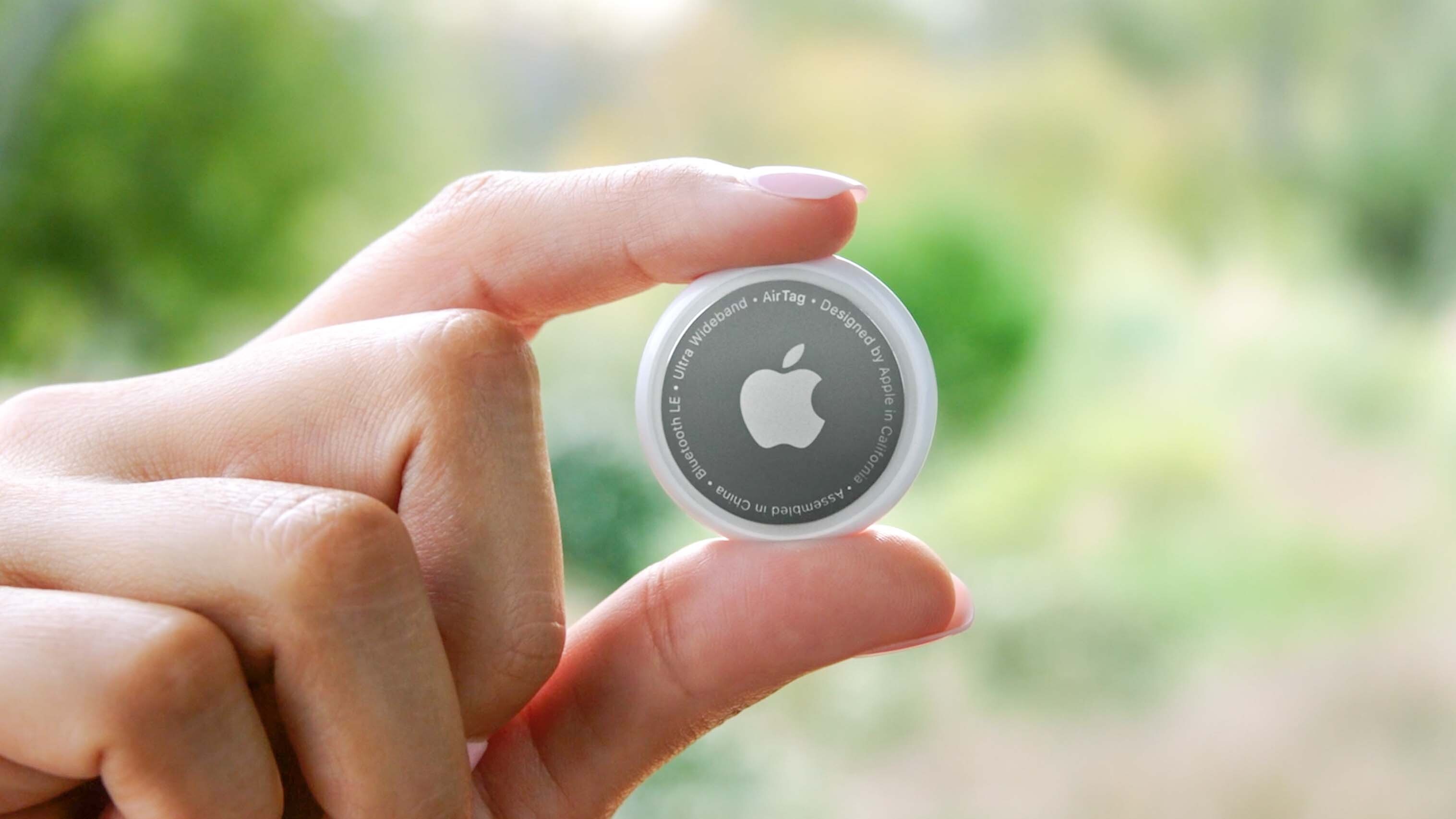Apple AirTag stalking is still a real danger — here’s how to protect yourself
What you need to know

Apple AirTags can be very useful devices, but they’ve already proven themselves to be rather dangerous. A large swathe of people, the majority of whom are women, have reported issues with AirTag stalking since Apple launched the tracking tags last year. And the problem doesn’t seem to be getting better.
Last week actor Hannah Rose May, known for her roles in Nova Vita and Altered Carbon, shared her own tale of being tracked by a rogue AirTag for at least two hours.
"An Apple AirTag was put on me to track my location Saturday night. I’m sharing what happened to me so you know what to look for as I had never heard of this prior to Saturday night," the actor explained.
An apple AirTag was put on me to track my location Saturday night. I’m sharing what happened to me so you know what to look for as I had never heard of this prior to Saturday night.June 28, 2022
The Independent contacted Apple for comment, but was directed to a statement already released back in February.
“AirTag was designed to help people locate their personal belongings, not to track people or another person’s property,” the statement says, “and we condemn in the strongest possible terms any malicious use of our products.”
Apple then goes on to talk about all the different systems it’s put in place to stop AirTag tracking, while also insisting that stalking is a problem that isn’t an AirTag-exclusive issue.
“Unwanted tracking has long been a societal problem, and we took this concern seriously in the design of AirTag. It's why the Find My network is built with privacy in mind, uses end-to-end encryption, and why we innovated with the first-ever proactive system to alert you of unwanted tracking. We hope this starts an industry trend for others to also provide these sorts of proactive warnings in their products.”
Sign up to get the BEST of Tom's Guide direct to your inbox.
Get instant access to breaking news, the hottest reviews, great deals and helpful tips.

May appears to have been lucky, with Apple’s detection systems working as intended. The actor had attended an after-hours event at Disneyland, from 11.45 p.m. to 2 a.m. and only realized an AirTag had been placed on her person after an alert from the Find My app towards the end of the night.
Apparently, May didn’t think anything of it until opening the notification, at which point she was informed an unknown AirTag had been tracking her for at least two hours. Fortunately, the device was disabled before she went home, and May had spent the night in a group.
“Airtags are the size of a coin. It’s scary how easy they are to slip into a pocket or purse. Originally created to locate your keys it’s evident they are being used for more bad than good,” May tweeted. “The happiest place on earth could of [sic] very easily turned into my worst nightmare.”
What can Apple do about this?
May noted that users should be alerted sooner, and I’m inclined to agree. Two hours is an awfully long time for a random person to be able to track and monitor your location. The Find My app should be alerting people to the presence of unknown AirTags much sooner, and with alerts that are much more difficult to miss; almost impossible, in fact, because this stuff is important.
The problem isn’t specifically unique to Apple, since there are plenty of other trackers on sale. However, the popularity of iPhones, and the fact each device is a part of the Find My network, means AirTags are significantly easier to track accurately. Because no matter how similar products from the likes of Samsung or Tile might be, their networks don’t have that same level of reach.
Which is why Apple needs to be taking anti-stalking measures more seriously than it appears to be doing. People have been killed after being tracked by AirTags, and the response needs to be better than the equivalent of “people suck, what else can we do about it?”
Apple has pushed out multiple updates to AirTag’s anti-stalking measures since they launched, but there’s still a lot to be desired. The fact that it can take up to two hours to be alerted to the presence of a rogue tracker is a perfect example of that. Likewise, those alerts only pop up if you’re using an iPhone.
Apple does offer the Tracker Detect app on Android, but it requires people to manually scan for nearby AirTags rather than doing it automatically. No matter how vigilant you are about your safety, having to constantly make your phone scan for rogue trackers sounds exhausting — and Apple can and should do better.
Of course, Google has a responsibility to add anti-tracker features to Android, which would ideally work the same way as Apple’s Find My system. However, that doesn’t appear to have been officially announced, and the onus is on Apple to ensure AirTags are not exploited in this way.
How can you avoid being stalked by AirTags?
If you’re worried about the possibility of being stalked by an AirTag, there are some things you can do. Our guide explaining how to tell if an AirTag is stalking you, goes into the subject in a lot more details, but here are the basics you need to know.
iPhone users: Rogue AirTags can be spotted by all iPhones up to (and including) the iPhone 6S — provided you have iOS 14.5 or newer software installed. You can make sure anti-stalking features are switched on in the Find My app, then tapping the Me icon in the bottom right and checking Item Safety Alerts is enabled.
Android users: It may be easy to install Apple’s Tracker Detect app, which is compatible with Android 9.0 and above, but as mentioned before this doesn’t scan automatically. You’re better off with a third party app like AirGuard, which works with Android 5.0 and above, and has the ability to detect AirTags and other Bluetooth-enabled trackers automatically.
AirTags will also start beeping if separated from their paired device for more than 24 hours. While it’s not an ideal solution to prevent stalking, given the time constraints, but it’s a better option than being tracked for an extended period.
What to do if you find a rogue AirTag
If you do ever find an unknown AirTag on your person, you can deactivate it from the Find My app. Removing the battery also works, and is worth doing anyway to make sure the tag is completely disconnected from the Find My network.
To do this push down on the center of the AirTag’s back panel and spin counter clockwise. This will open up the back, letting you remove the CR2032 battery within. Doing this also revealed the tag’s serial number, which the police and Apple can use to track down the tag’s original owner.
Once you’ve made a note of the serial number, make sure you don’t destroy or damage the AirTag. It’s evidence against whoever put it there, so be sure to file a report with the police and hand it over if asked.
Next: You can use your AirTag for good too, like to track your luggage while traveling and not lose your bags this summer.

Tom is the Tom's Guide's UK Phones Editor, tackling the latest smartphone news and vocally expressing his opinions about upcoming features or changes. It's long way from his days as editor of Gizmodo UK, when pretty much everything was on the table. He’s usually found trying to squeeze another giant Lego set onto the shelf, draining very large cups of coffee, or complaining about how terrible his Smart TV is.
